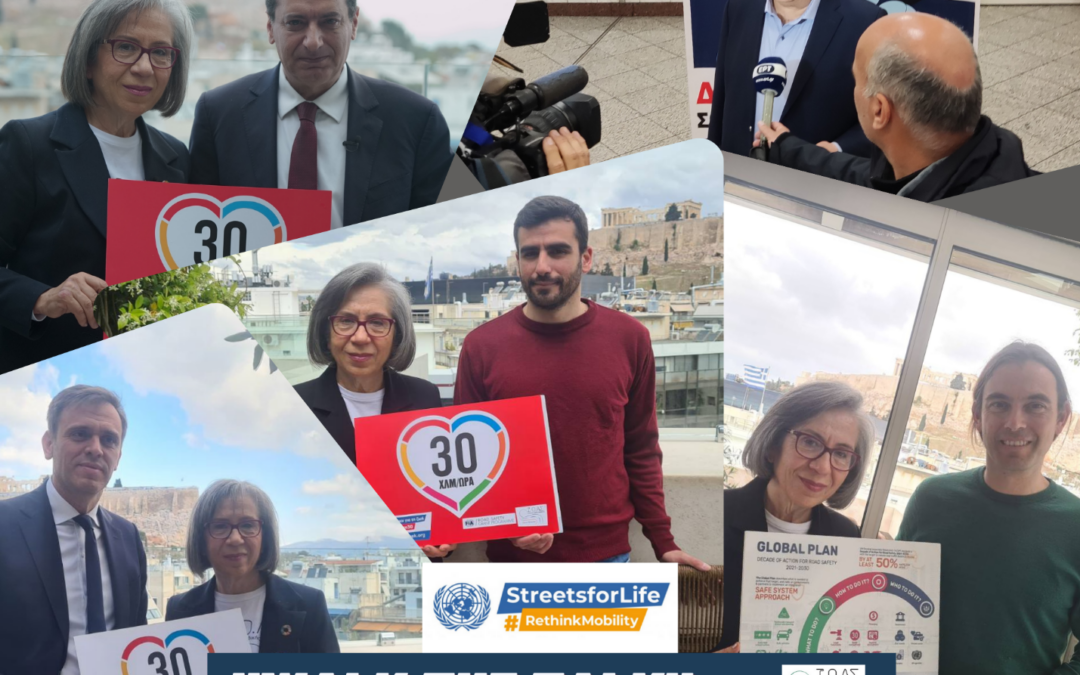During the 7th UN Global Road Safety Week (May 15-21) and in conjunction with the upcoming national elections in Greece, the Road Safety Institute (RSI) “Panos Mylonas” conducted the “Walk the Talk” campaign. This initiative aimed to raise awareness about the critical issue of Road Safety and encourage political decision makers and notable personalities to take concrete actions.
The urgent need to address the high fatality rates among vulnerable road users and in urban areas highlights the importance of reevaluating Mobility, as emphasised by the 7th United Nations World Road Safety Week’s #RethinkMobility initiative. The goal is to create safe and convenient conditions for walking, cycling, and public transport, encouraging the adoption of active and sustainable modes of transportation. In line with this objective, the Road Safety Institute (RSI) invited each political party represented in the Hellenic Parliament in Greece to nominate a spokesperson for a brief interview regarding their Party’s plans and strategies on Road Safety. The campaign featured the participation of the following personalities:
Michalis Papadopoulos, Deputy Minister of Transport, Chairman of the Governmental Road Safety Committee, Parliamentary candidate for Nea Dimokratia Kozani Region;
Christos Spirtzis, former Minister of Infrastructure and Transport, Parliamentary candidate for Eastern Attica SYRIZA-Progressive Alliance;
Dimitris Mantzos, Press Representative for PASOK-Movement for Change;
Manos Mylonas, Member of the KKE Regional Committee of Attica;
Kriton Arsenis, Parliamentary candidate of West Athens MeRA25.
All representatives were given equal time to answer the same five questions, covering the following topics:
1. Achieving the target of a 50% reduction in fatalities and serious injuries by 2030 in line with the EU Road Safety Policy Framework 2021-2030 and the Global Plan for the Decade of Action for Road Safety 2021-2030
2. Sustainable mobility – multimodal transport
3. Measures for safe mobility within the urban environment – adoption of 30 km/h zones in residential areas
4. Allocation of resources for Road Safety
5. Local road safety problems – Planning

